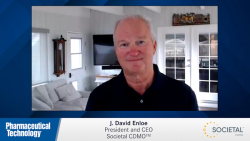
OR WAIT null SECS
- About Us
- Advertise
- Contact Us
- Editorial Info
- Editorial Advisory Board
- Do Not Sell My Personal Information
- Privacy Policy
- Terms and Conditions
© 2026 MJH Life Sciences™ , Pharmaceutical Technology - Pharma News and Development Insights. All rights reserved.
PhRMA’s Research and Hope Awards Unveiled
On Sept. 12, 2012, the Pharmaceutical Research and Manufacturers of America (PhRMA) will honor nine individuals for their research into and fight against.
On Sept. 12, 2012, the Pharmaceutical Research and Manufacturers of America (PhRMA) will honor nine individuals for their research into and fight against Alzheimer’s Disease (AD) as part of the association’s new Research and Hope Awards. The statistics surrounding AD have been plaguing families for decades. The disease is the sixth leading cause of death in the US today, according to the Alzheimer’s Association, with 5.4 million people currently affected. By the year 2050, one American will develop AD every 33 seconds.
The costs surrounding AD, from both a financial and time perspective, are also disheartening. The Alzheimer’s Association notes that the US spends an estimated $200 billion on AD per year, and families across America and around the globe are all too aware of the intense care and attention that AD patients require. These are just some of the reasons why PhRMA has focused on AD for its award program, which launches this year, replacing the PhRMA Discover’s award program.
Alzheimer’s is different from other global priority diseases, Castellani told Pharmaceutical Technology in a special interview before the awards were announced, because scientists don’t yet know the cause. “The treatment may very well lead us back to the cause in this case,” he said.
In terms of the day-to-day work being done to find a treatment and improve care, the 2012 PhRMA Research and Hope Awards honor the following:
-The Research & Hope Award for Academic Research in Alzheimer’s (presented to individuals or a team from the academic community for outstanding research in the search for a cure for Alzheimer’s disease): Bradley T. Hyman, MD, PhD, Professor of Neurology, Massachusetts General Hospital/Harvard Medical School; and David Holtzman, Andrew B. and Gretchen P. Jones Professor and Chairman; Department of Neurology, Washington University School of Medicine.
Hyman’s current laboratory is looking to develop methods to examine clinical-pathological correlates and biomarkers in AD, as well as animal and cell models to explore the natural history of the disease. His team is using advanced microscopy and FRET methods to detect protein-protein interactions and protein conformation.
Holtzman, who established the Memory and Cognitive Disorders Clinic at the University of California San Francisco, is involved in clinical and research activities at the Washington University Alzheimer’s Disease Research Center. His team’s focus has included ascertaining how apoE influences Abeta metabolism and risk for AD, the influence of synaptic activity and sleep on Abeta metabolism, examining the potential ability of anti-Abeta antibodies to act as therapeutically and diagnostically in AD, and establishing new methods to study protein metabolism in the CNS for both diagnostic and theranostic purposes.
-The Research & Hope Award for Biopharmaceutical Industry Research in Alzheimer’s (presented to individuals or team from a biopharmaceutical company for outstanding research in the search for a cure for Alzheimer’s disease): The Merck BACE Team, including Eric M. Parker, Senior Director and Neuroscience Site Lead; Andrew W. Stamford, Director, Discovery Chemistry; Matthew E. Kennedy, Associate Director, Neuroscience; Mark S. Forman, Director, Clinical Research; and Julie A. Stone, Senior Scientific Director.
The BACE team is evaluating the safety and efficacy of the beta-amyloid precursor protein site cleaving enzyme, or BACE, inhibitors, including MK-8931, which is Merck’s lead AD pipeline compound. Clinical trial results thus far evaluating the safety and tolerability of MK-8931 in 40 healthy adults aged 18 to 45 associated single doses of MK-8931 with marked reductions in amyloid beta peptide concentration levels.
http://www.merck.com/newsroom/news-release-archive/research-and-development/2012_0713.html
-The Research & Hope Award for Patient Advocacy (presented to an individual or organization that has had significant impact supporting and advocating for legislative or regulatory health policy issues): Kate Maslow at the Keck Center Institute of Medicine (IOM). Maslow, a scholar-in-residence at the IOM National Academy of Sciences, is focusing on issues tied to the care of people with AD and other dementias.
Among other related accomplishments, Maslow previously spent 15 years at the Alzheimer’s Association, directing practice and policy initiatives to improve the quality, coordination, and healthcare outcomes of long-term services and supports for AD patients and their caregivers.
-The Research & Hope Award for Volunteer Champion (presented to an individual who has significantly affected the lives of patients and/or home caregivers in a charitable or humanitarian way): Neha Chauhan at the AFA Teens for Alzheimer’s Awareness.
Chauhan, now an MBA student at Stanford, has been volunteering in the fight against AD since age 15 as the founder of AFA Teens, which is a branch of the Alzheimer’s Foundation of America dedicated to youth advocacy.
Castellani refers to these four award categories as the “ecosystem” required to treat, prevent, and defeat AD once and for all. “Each one of these recipients brings a perspective that is necessary for success when you are trying to battle a disease like Alzheimer’s,” he told Pharmaceutical Technology.
The science award winners were selected by a special committee of the PhRMA Foundation. The advocacy awards were selected by a committee made up of PhRMA and cohost representatives. Pharmaceutical Technology is a media partner to the awards program, whose recipients are being honored at the Newseum in Washington, DC, on Sept. 12, 2012.
To listen to the full Pharmaceutical Technology interview with Castellani, including his thoughts on why Alzheimer’s Disease was selected for the launch award program over other global priority and neglected diseases, how regulatory approval systems can help AD research, and what the award recipients are working on now, you can download a podcast online at PharmTech.com/PharmTechTV. Look for interviews with the winners in the December issue of Pharmaceutical Technology.


